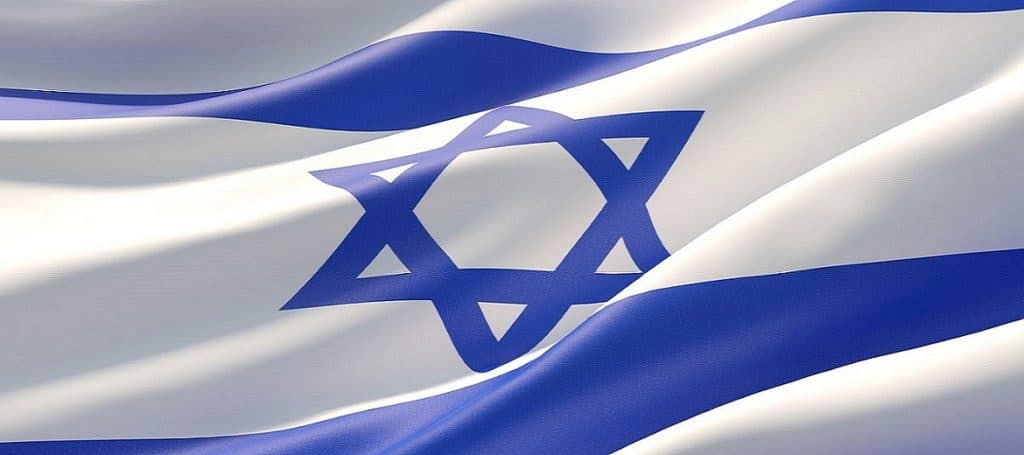World Strategic Insights interview with Nimrod Goren about Israel’s stance in the Russian-Ukrainian conflict, the impact on the Palestinian issue and the foreseeable agenda of President Biden’s upcoming visit to Israel.

Dr. Nimrod Goren is the President and Founder of Mitvim – The Israeli Institute for Regional Foreign Policies and the Co-Founder of Diplomeds – The Council for Mediterranean Diplomacy. He teaches Middle Eastern Studies at the Hebrew University of Jerusalem.
– Israel, a longtime partner of both Russia and Ukraine, has tried to maintain a degree of neutrality since Russia’s invasion of Ukraine last Feb. 24, although it has gradually taken a more pro-Ukrainian stance. Israel rejected a U.S. request to transfer Israeli-made and Israeli-licensed missiles to Ukraine because of fears that Israeli-made weapons could cause Russian casualties; Israel has only supplied Ukraine with non-lethal military equipment. Israel’s reluctance to take sides against Russia stems from a number of calculations related to protecting its geopolitical interests in the region. How important is the Russian factor in Israel’s security?
NG: Israel has been trying to balance its position shortly after the Russian invasion of Ukraine. On the one hand, it took a clear moral position supporting the Ukrainian territorial integrity and the people of Ukraine, and its society mobilized to provide humanitarian assistance. On the other hand, while Foreign Minister Lapid was heavily criticizing Russia, Prime Minister Bennett was more cautious and refrained from mentioning Russia at all. This balancing act took place due to Israel’s security interests in Syria, as well as the wish to safeguard the wellbeing of Jewish communities there and the good working relations with the Russian leadership. Over time, Israel’s alignment with the Ukrainian position – as well as with Western reactions to the war – has become more evident, based on both geopolitical and moral considerations. Israel also tried to mediate, or convey messages, between Russia and Ukraine. This was the first time that Israel actually tried to mediate in a conflict of others at such a level. But after several weeks, those efforts were put on the backburner, partly because there were more pressing domestic issues for the Israeli government to deal with – from terror attacks to political instability – and partly because Israel’s diplomatic efforts were not capable of truly altering the reality of war. Since then, the war in Ukraine has taken a different, much less significant, place in the Israeli discourse.
– The Palestinian Authority adheres to the principle of neutrality in the Russian-Ukrainian conflict, although the Palestinians have often expressed their rejection of the double standards policy adopted by the United States and NATO countries. Can the war in Ukraine have an impact on the Palestinian issue and, in general, repercussions in Middle Eastern affairs and geopolitical contexts?
NG: Indeed, some Arab countries have also adopted a rather neutral approach to the war. However, I think the war in Ukraine is not a determinant factor in shaping Israel-Palestinian relations or even Israel-Arab relations. The Israeli-Palestinian conflict revolves around different core issues. The war in Ukraine can impact the level of international involvement – or lack of involvement – towards Israeli-Palestinian peacemaking. While the international focus is on Ukraine, there is less appetite for engagement on other issues that are less urgent, like the Israeli-Palestinian issue. Still, it is important to have international actors address this issue, voice support for the two-state solution, and seek paths to advance peace or to help local actors working towards this goal.
– The close relationship between the United States and Israel has been one of the most salient features of both countries’ foreign policy. U.S. President Joe Biden should make his first presidential visit to Israel. As the war in Ukraine evolves, could Jerusalem agree to align with the United States and join the Alliance supporting Ukraine in order to maintain its relationship with America? Also, in general, what impact do you think Biden’s visit could have in the Middle East region?
NG: The Israel-US alliance is long-standing and is very solid, despite differences that exist on specific issues. Israel knows to take into account American expectations, including regarding Ukraine. And, the US understands sensitivities that limit Israeli reactions to the war in Ukraine. So, I think there is a modus operandi that both sides are okay with. President Biden’s planned visit to Israel will be an important milestone. It was postponed from June, and is currently expected in mid-July. The visit will likely focus on other issues than the war in Ukraine, which are of importance to both the Israeli and American national security. The leaders will probably discuss the Iran issue, which tops the Israeli National Security agenda, and it increasingly seems like the Biden visit will also help move forward Israeli-Saudi relations. The US may be trying to orchestrate a summit with regional leaders during the visit, and to announce economic steps forward between Israel and Saudi Arabia. We must remember, though, that political instability in Israel – should it lead to the collapse of the government, might eventually jeopardize the visit altogether. It will be important for Biden to also meet the Palestinian leadership while in the region, to reflect the interest and willingness of his administration to advance the two-state solution, even despite current obstacles and more pressing issues.
Dr. Nimrod Goren is the President and Founder of Mitvim – The Israeli Institute for Regional Foreign Policies, and the Co-Founder of Diplomeds – The Council for Mediterranean Diplomacy. He teaches Middle Eastern Studies at the Hebrew University of Jerusalem, and is a Faculty Affiliate at Syracuse University’s Program for the Advancement of Research on Conflict and Collaboration (PARCC). He holds a Ph.D. in Middle Eastern Studies and Political Psychology from the Hebrew University and was a Hubert Humphrey Fellow at Syracuse University’s Maxwell School of Citizenship and Public Affairs. He is the recipient of the Victor J. Goldberg Prize for Peace in the Middle East and the Centennial Medal of the Institute of International Education, and a former Visiting Fellow at JStreet. Nimrod was also named a Vamik Volkan Scholar by the International Dialogue Initiative and is a member of the Global Diplomacy Lab. He serves on the board of The Center for Enterprising Citizens and on the steering committees of the Geneva Initiative and the Turkish-Israeli Civil Society Forum. His areas of expertise include diplomacy, regional cooperation and peacemaking, with a focus on Israel’s foreign policy and regional relations, the Middle East peace process, and Turkish foreign policy.







